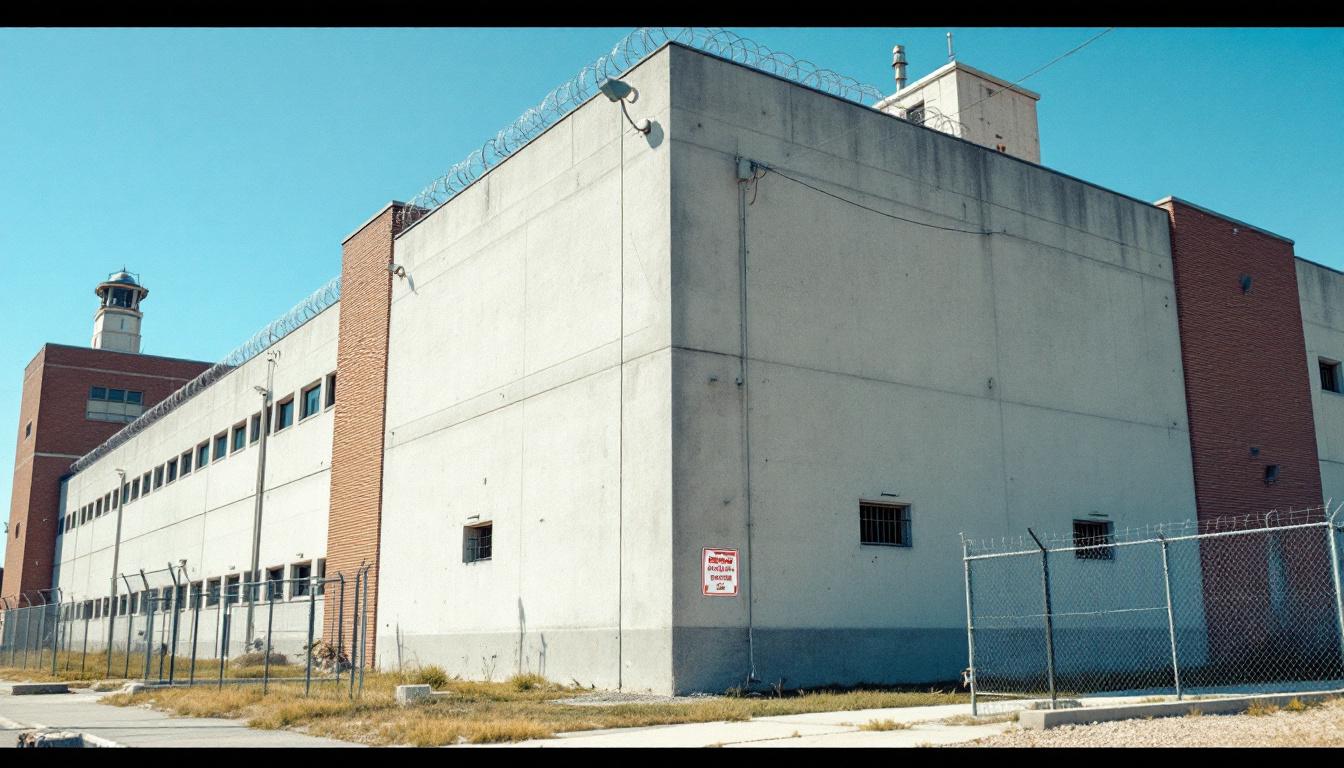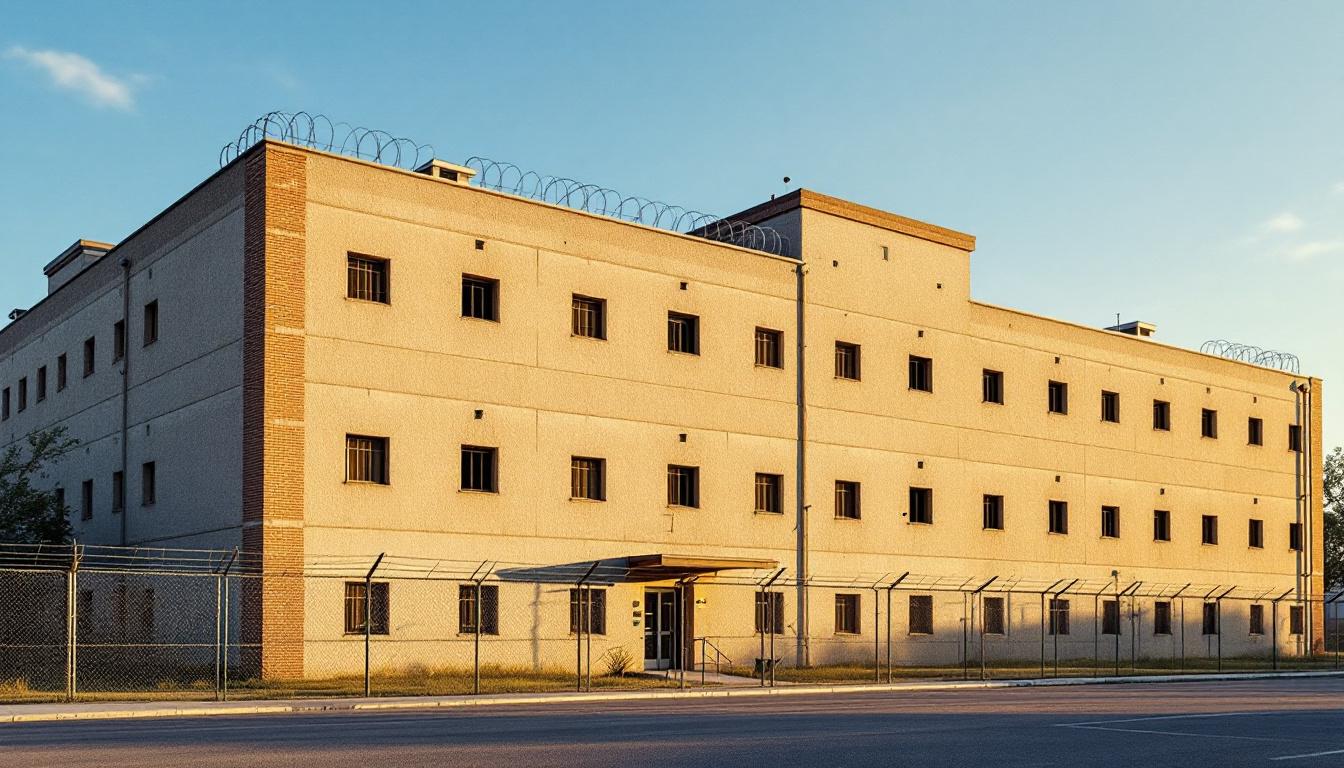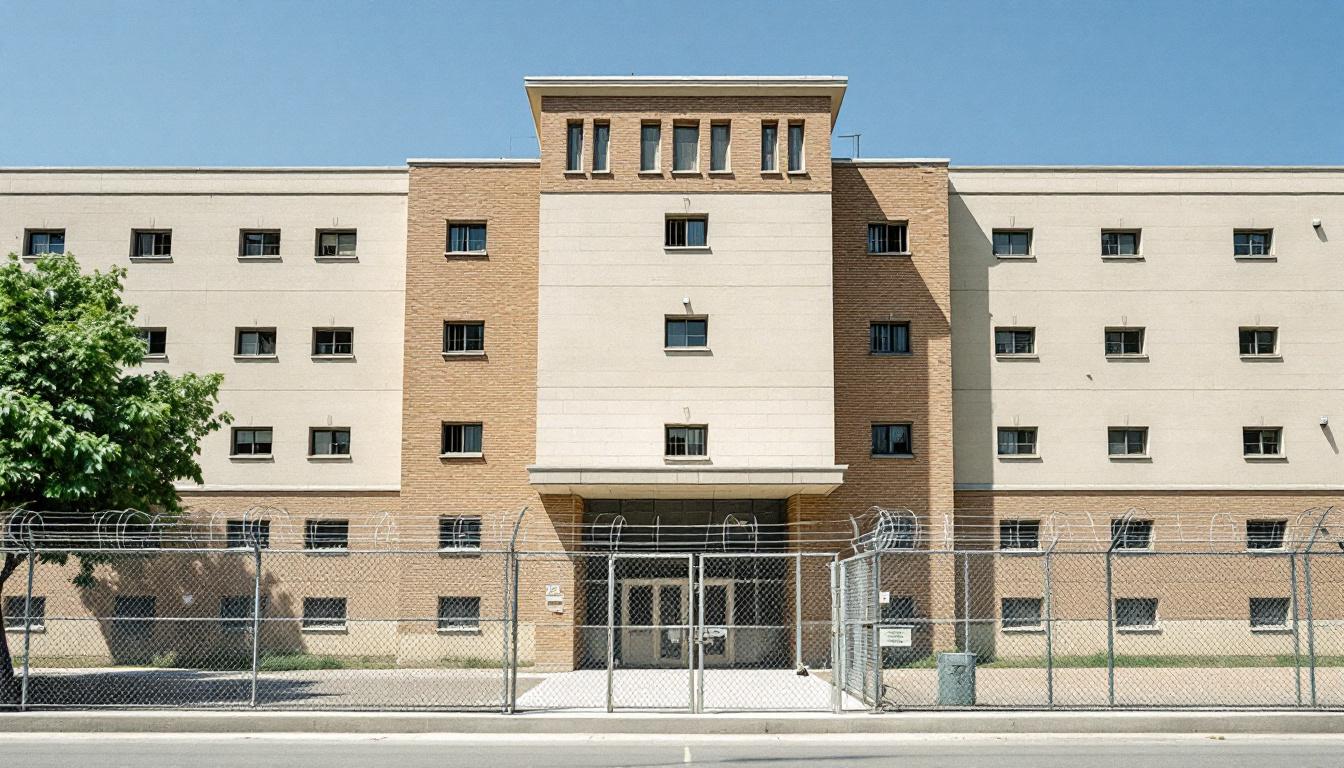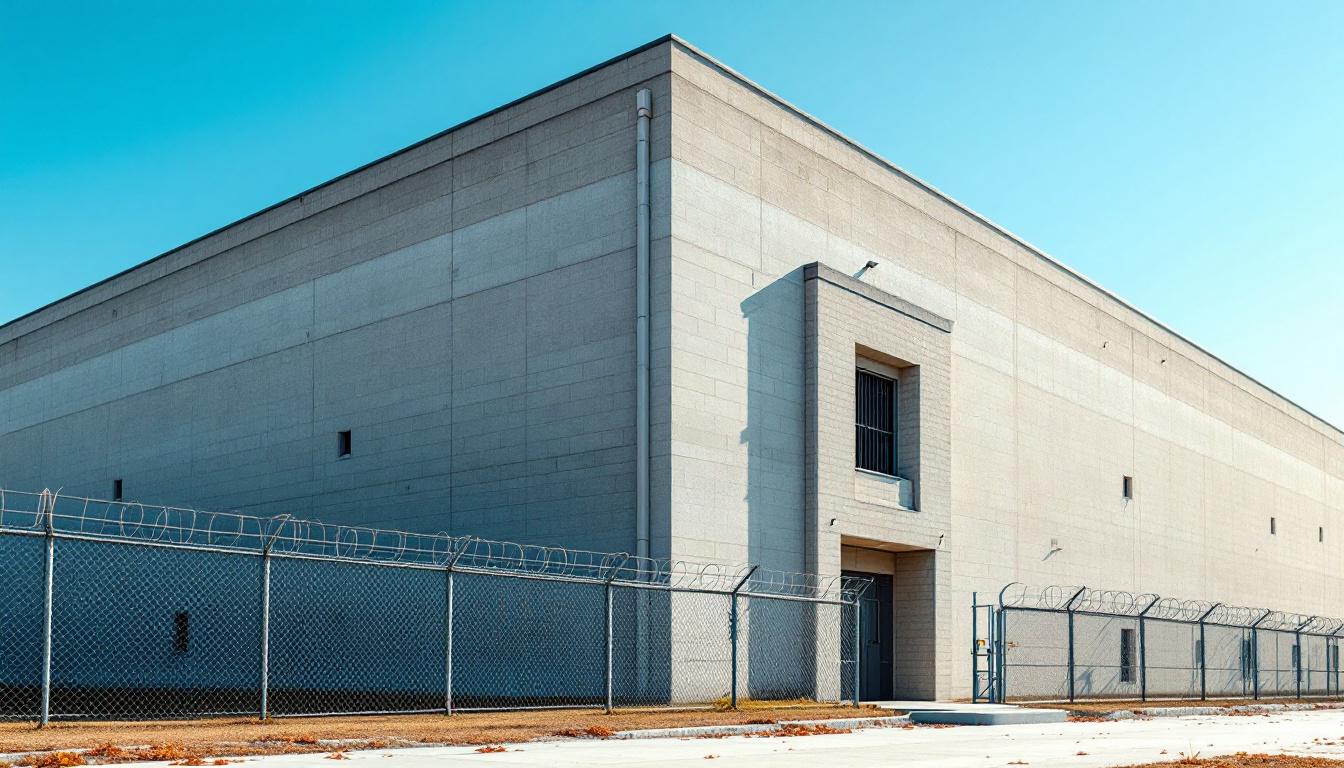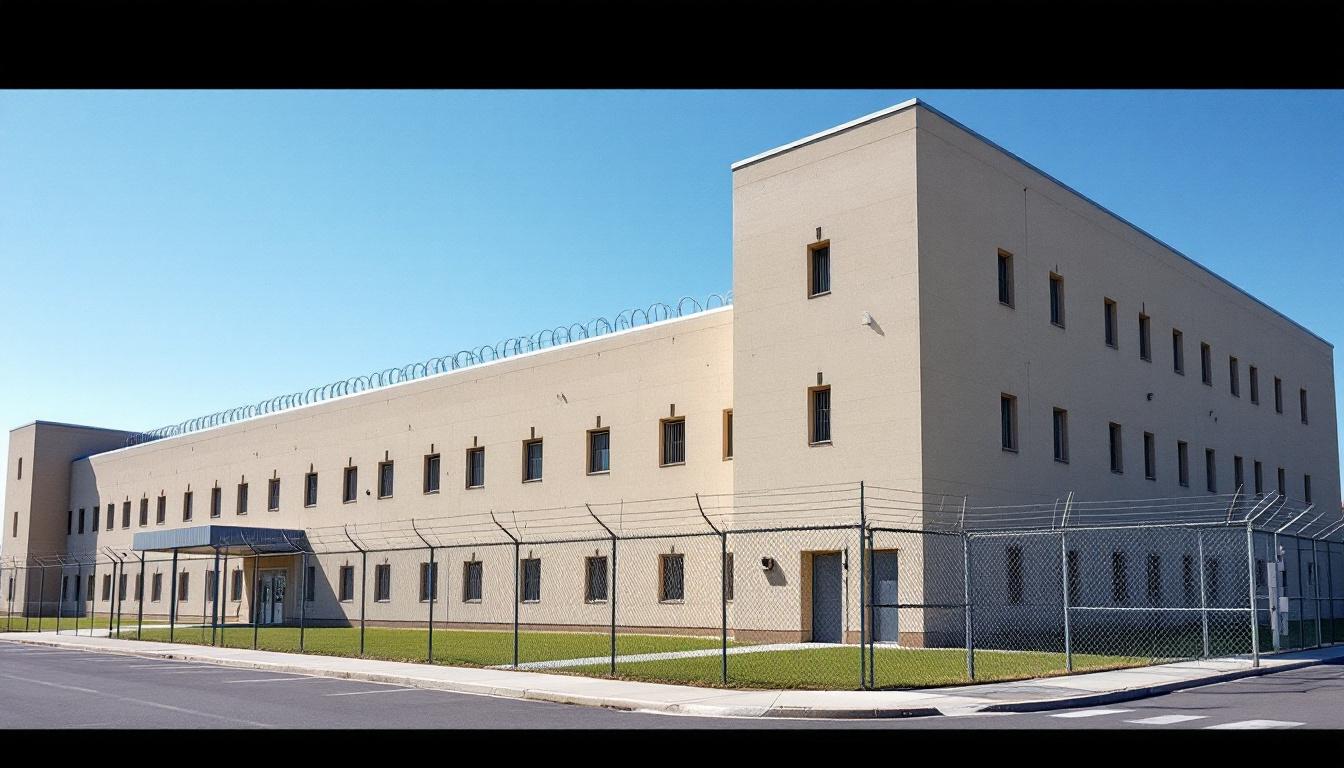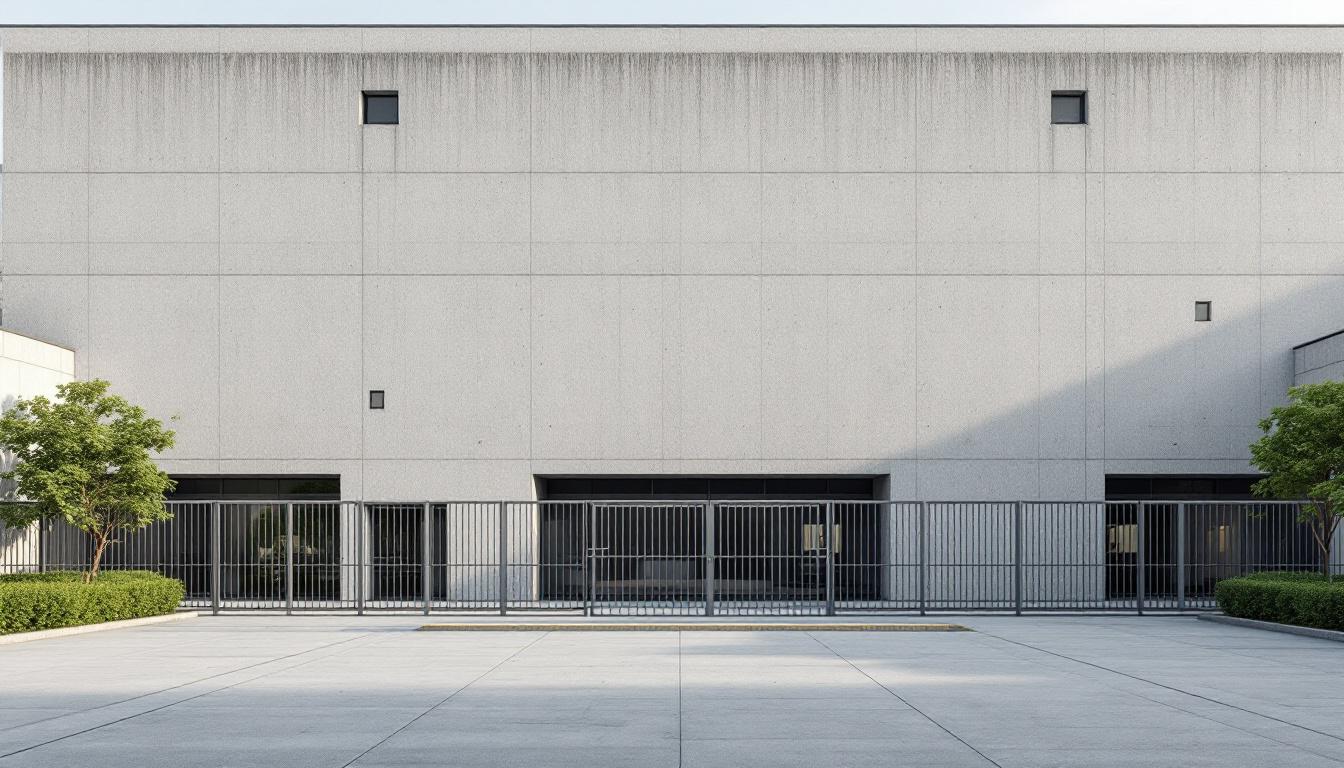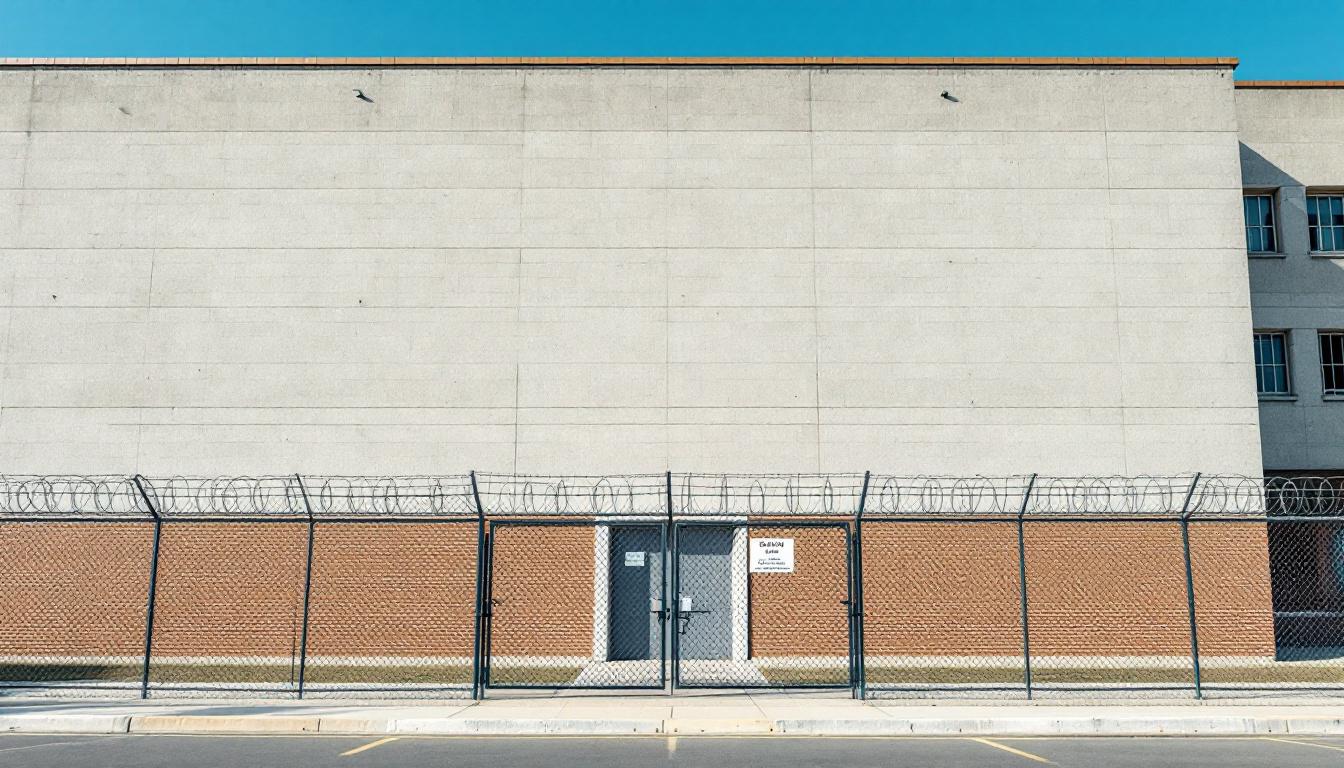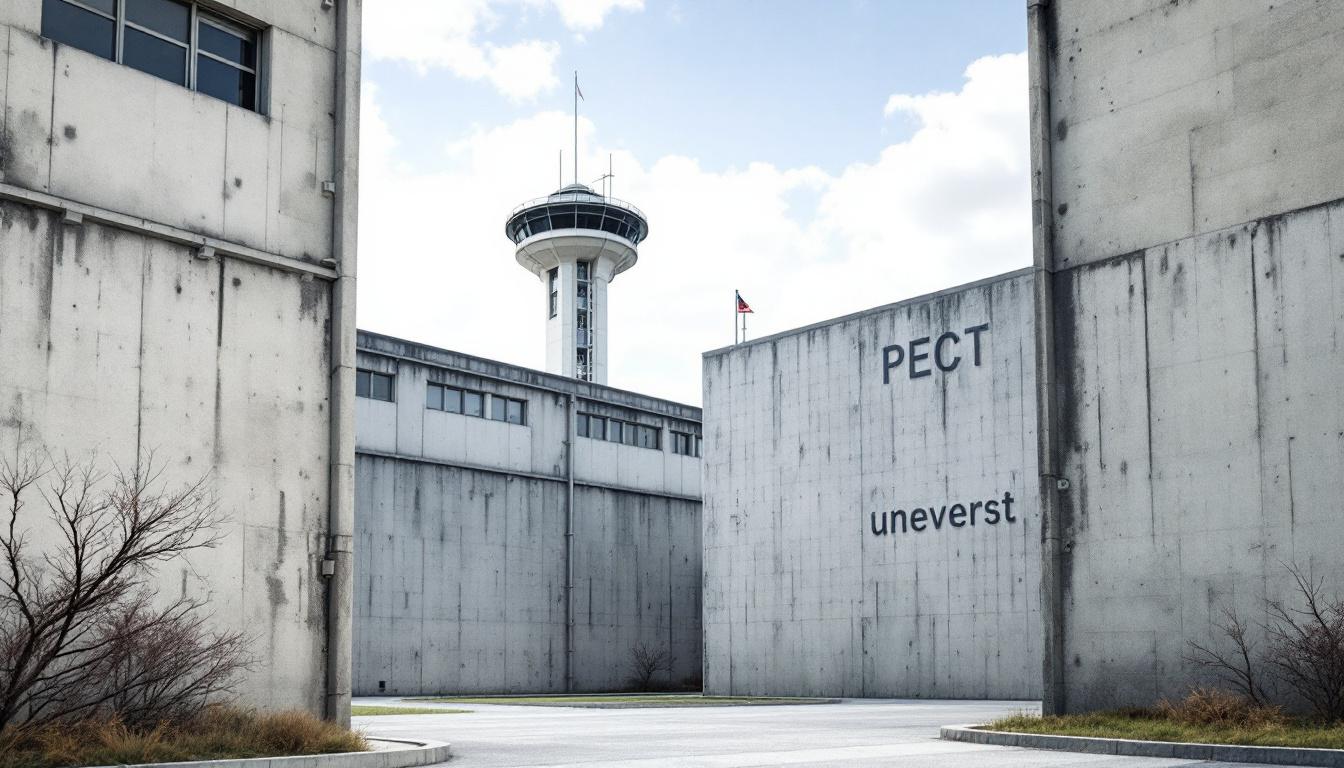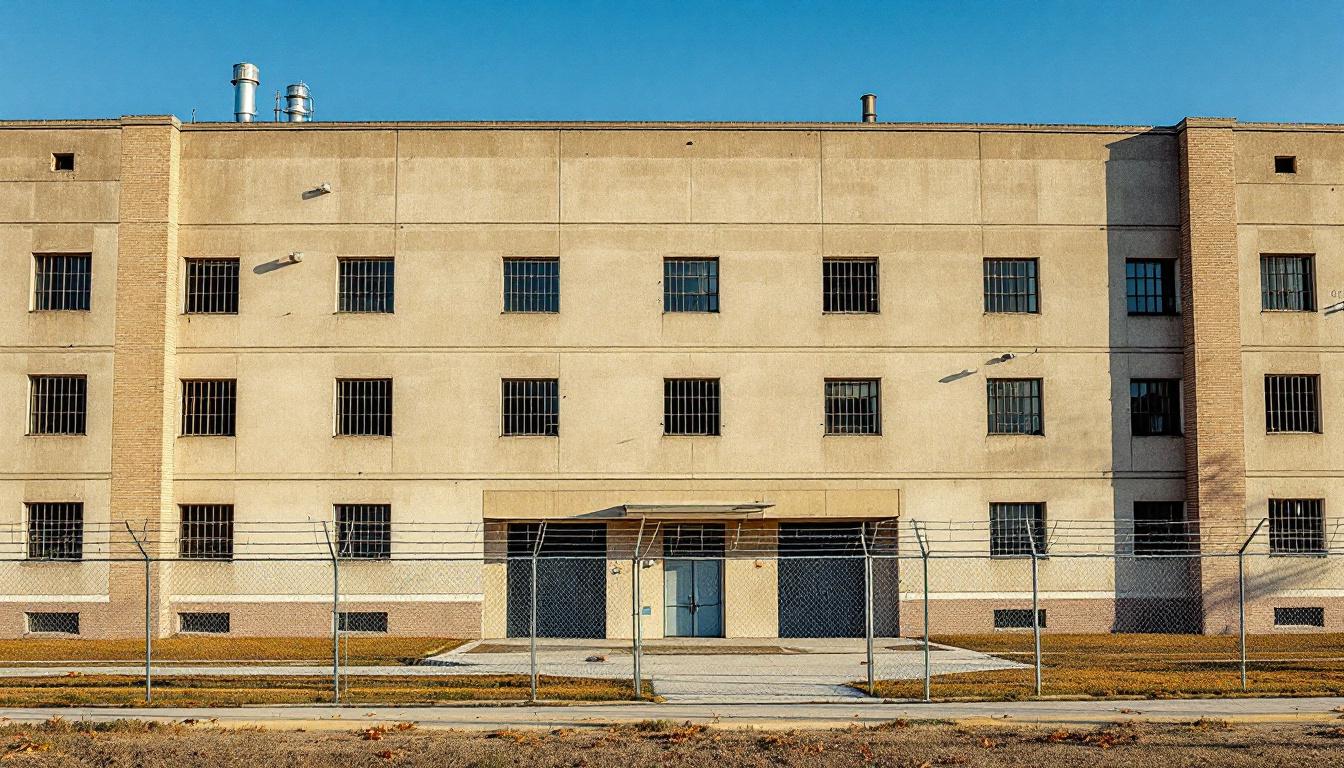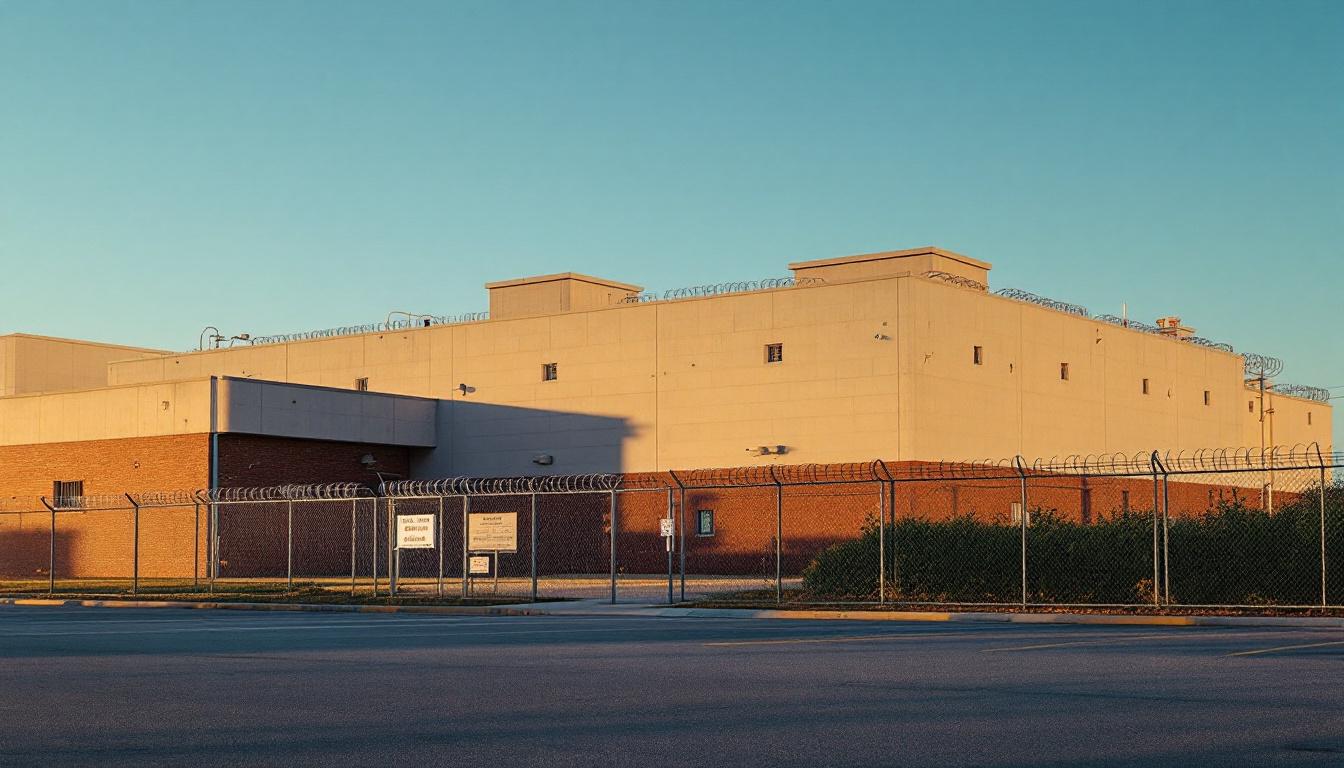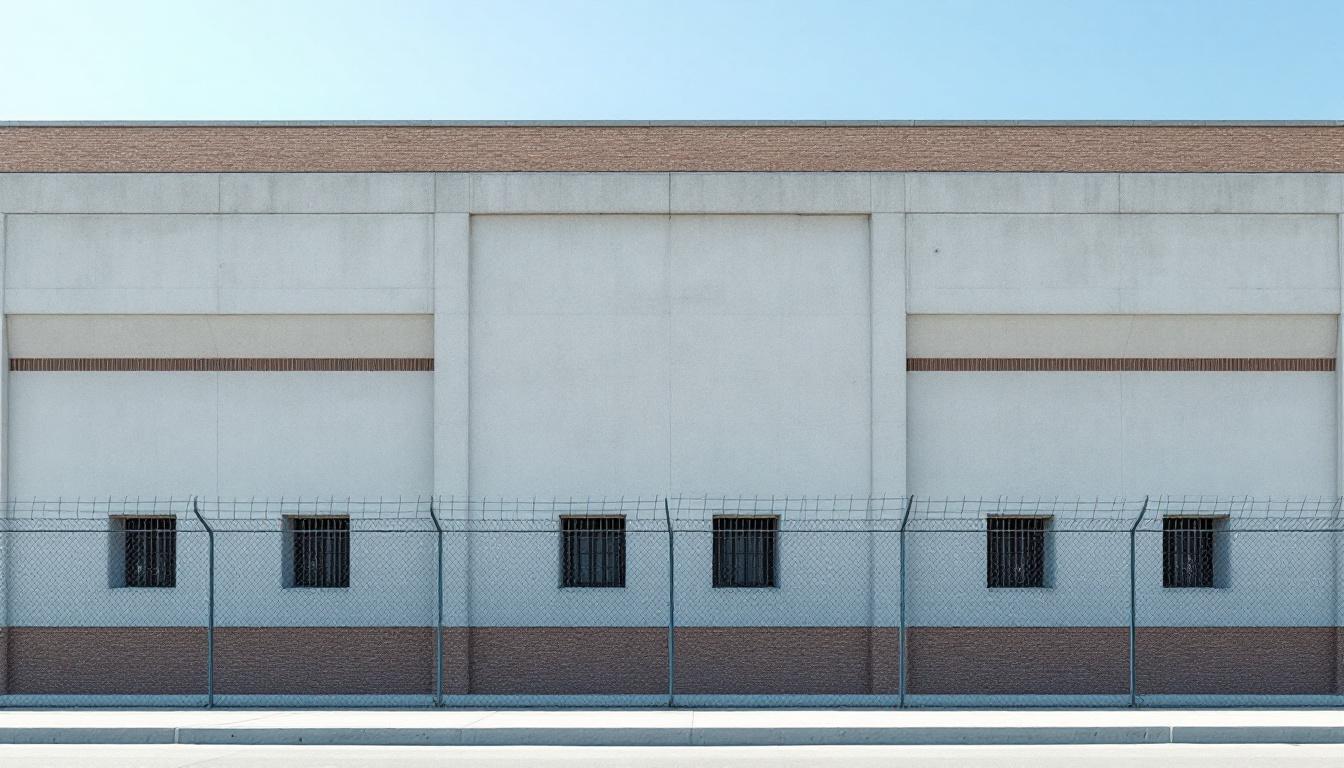
Quick Navigation
How to contact an inmate at Michigan Reformatory
This comprehensive guide will walk you through how to connect with an inmate at Michigan Reformatory. Follow the steps below to find an inmate and send letters and photos:
- Search for the inmate using our search tool below
- Create your account or log in to Penmate
- Write your message (up to 6,000 characters)
- Send instantly - inmates receive printed copies daily
Find an Inmate
Search for an inmate to start communicating today
Tip: You can search by first name, last name, or inmate ID number
To contact a person at Michigan Reformatory start by searching for the person on the official facility website. Perform a search by following these steps:
- Step 1: Enter their first name and last name into the search form and click "Search"
- Step 2: Locate their inmate record
- Step 3: Write down their Inmate ID and any housing information provided
Important! Be sure to enter the person's full name. Nicknames should not be used.
How to Send Messages to Inmates

You can use your phone or computer to send emails, letters, and photos to an inmate. Messages are sent electronically to inmate tablets or kiosks at the facility. If you would like to send a message, start by searching for an inmate at Michigan Reformatory.
Sending Photos and Postcards

A great way to send love and support to a loved one at Michigan Reformatory is to send photos and postcards. It only takes a few minutes to send photos from your phone and it makes a huge difference. You can also mail postcards with words of support and inspiration, or design your own postcard for special moments like birthdays and holidays.
Important! Be sure not to send any explicit photos or they may not be approved by the facility. You can also use a photo printing app like Penmate to make sure your photos are printed at the correct size (4x6 or 3x5) and are mailed according to the rules and regulations of Michigan Reformatory.
Frequently asked questions about Michigan Reformatory
-
How long does it take to deliver a message?
If you're sending an email message your letter is usually delivered within 24-48 hours. For messages sent via mail you should expect delivery within 3-7 days. All messages will need be approved by Michigan Reformatory.
-
How much does it cost to send a message to Michigan Reformatory?
You can send a message free using your phone or mail a message via USPS for the price of a $0.60 stamp and envelope. You can also purchase credits or e-stamps from services starting at $1.99.
-
What services can I use to contact an inmate at Michigan Reformatory?
Penmate
You can use Penmate to send letters and photos to an inmate from your phone. It's an easy way to stay in touch during your loved one's incarceration. Use the inmate locator to find an inmate's location and contact information, then you can send messages within a few minutes.
Securus messaging
Securus may be another option for communicating with an inmate at Michigan Reformatory. You can create a friends and family account and purchase credits to send messages. All messages will be reviewed and must be approved by the facility.
JPay
Some county jails and state prisons may support sending messages with JPay. You must register an account with the system, find your loved one, and purchase stamps to send messages. For some locations you can also attach photos.
Smart Jail Mail
You may also check if Smart Jail Mail is available at Michigan Reformatory. Smart Jail Mail is operated by Smart Communications and has contracted with some state and county jails. After purchasing credits, your messages and photos are sent to the facility, printed out, and then handed out to your loved one.
-
What is the mailing address of Michigan Reformatory?
Mailing address:
Michigan Reformatory
1342 W Main St
Ionia, MI 48846
Phone: (616) 527-2500 -
What are the visiting hours at Michigan Reformatory?
Visiting hours at Michigan Reformatory vary by housing unit and security level. Generally, visits are scheduled on weekends and holidays, with some facilities offering weekday visits. Contact the facility directly at (616) 527-2500 or check their website for the current visiting schedule. Visits typically last 30-60 minutes and must be scheduled in advance.
-
What items are prohibited when sending mail to Michigan Reformatory?
Prohibited items typically include: cash, personal checks, stamps, stickers, glitter, glue, tape, staples, paperclips, polaroid photos, musical or blank greeting cards, hardcover books, magazines with staples, and any items containing metal or electronics. Only send letters on plain white paper with blue or black ink. Photos must be printed on regular photo paper (no Polaroids). Always check with Michigan Reformatory for their specific mail policies.
-
How do I send money to an inmate at Michigan Reformatory?
You can send money to an inmate at Michigan Reformatory through several methods: 1) Online using JPay, Access Corrections, or the facility's approved vendor, 2) Money orders mailed directly to the facility with the inmate's name and ID number, 3) Kiosks located in the facility lobby, or 4) Over the phone using a credit or debit card. Fees vary by method, typically ranging from $2.95 to $11.95 per transaction.
-
Can I schedule a video visit with an inmate at Michigan Reformatory?
Many facilities now offer video visitation as an alternative to in-person visits. At Michigan Reformatory, video visits may be available through services like Penmate, Securus Video Connect, GTL, or ICSolutions. Video visits typically cost $10-20 for 20-30 minutes and must be scheduled in advance. You'll need a computer or smartphone with a camera and reliable internet connection. Contact the facility for their specific video visitation policies and approved vendors.
-
What identification do I need to visit an inmate at Michigan Reformatory?
All visitors must present valid government-issued photo identification such as a driver's license, state ID, passport, or military ID. Minors must be accompanied by a parent or legal guardian who can provide the minor's birth certificate. Some facilities require visitors to be on the inmate's approved visitation list, which may require a background check. Contact Michigan Reformatory for specific ID requirements and visitor approval procedures.
-
How can I find out an inmate's release date?
To find an inmate's release date at Michigan Reformatory, you can: 1) Use the online inmate search tool if available, 2) Call the facility's records department, 3) Contact the inmate's case manager or counselor, or 4) Have the inmate provide this information during a call or visit. For privacy reasons, some facilities only release this information to immediate family members.
Facility Overview
Official Website
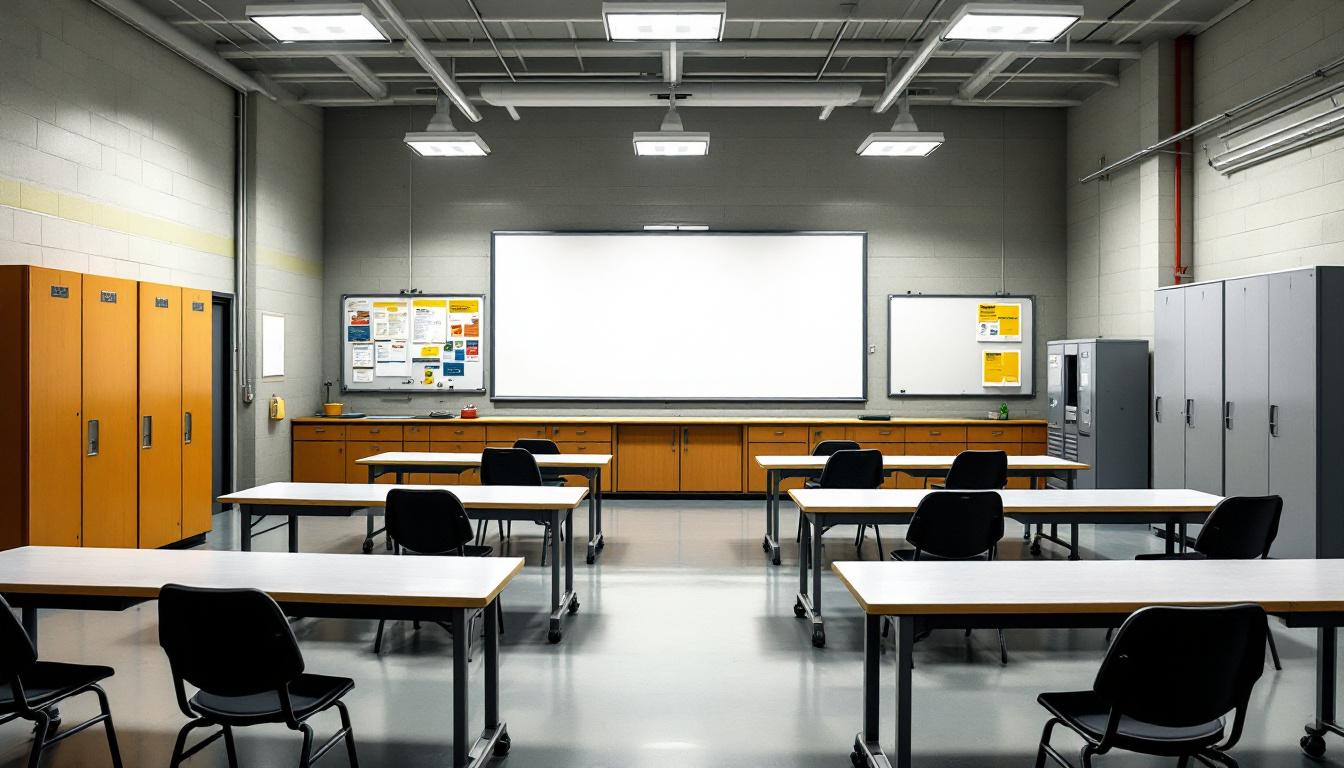
About Michigan Reformatory
Rehabilitation and successful community reintegration form the cornerstone mission that drives operations at the Michigan Reformatory, a state correctional facility serving the broader Ionia community and surrounding mid-Michigan region. Through structured programming designed to address the complex factors that contribute to criminal behavior, this MI correctional facility operates within Michigan's comprehensive correctional system to balance public safety with meaningful opportunities for personal transformation. The facility's approach typically emphasizes evidence-based practices that may include educational advancement, vocational skill development, and therapeutic interventions tailored to support those incarcerated services throughout their journey toward eventual community return.
Located in Ionia, the facility generally maintains security protocols while fostering an environment where rehabilitation programming can take place effectively. Educational opportunities often include literacy development, GED preparation, and post-secondary coursework, while vocational training may encompass various trades that align with regional employment needs. Mental health services, substance abuse treatment, and cognitive-behavioral programming typically form additional components of the comprehensive approach to addressing underlying issues that contribute to criminal behavior. The facility's operations generally reflect Michigan's commitment to reducing recidivism through structured intervention and skill-building initiatives.
The correctional facility's role within Michigan's justice system extends beyond containment to encompass preparation for successful community reintegration. Pre-release planning processes typically include coordination with community resources, job placement assistance, and transitional support services designed to reduce barriers to successful reentry. Through these systematic approaches to rehabilitation and reintegration, the facility contributes to broader public safety goals while providing those incarcerated services that address individual needs and circumstances that may have contributed to their involvement in the criminal justice system.
Programs & Services
Personal growth opportunities within Michigan Reformatory center around building practical skills and fostering positive decision-making abilities. Those incarcerated can access various offerings designed to prepare them for successful community reintegration. The facility typically emphasizes structured learning environments that promote both personal accountability and professional development.
Educational and vocational offerings may furnish participants with marketable skills for post-release employment. Education programs often include basic literacy instruction, GED preparation, and continuing education opportunities that help those incarcerated advance their academic credentials. Furthermore, vocational education typically focuses on hands-on training in essential trades, with HVAC certification being among the specialized technical programs available to qualifying participants.
Support services complement the educational framework through targeted reentry preparation and peer-based assistance. The prisoner reentry initiative often includes comprehensive planning that addresses housing, employment, and community connections upon release. Furthermore, peer support groups typically provide structured environments where those incarcerated can develop interpersonal skills and accountability practices. Decision making skills workshops may furnish practical tools for managing challenges, while printing services often serve both as vocational training and facility operations support, giving participants real-world work experience within a secure environment.
Daily Life & Visitation
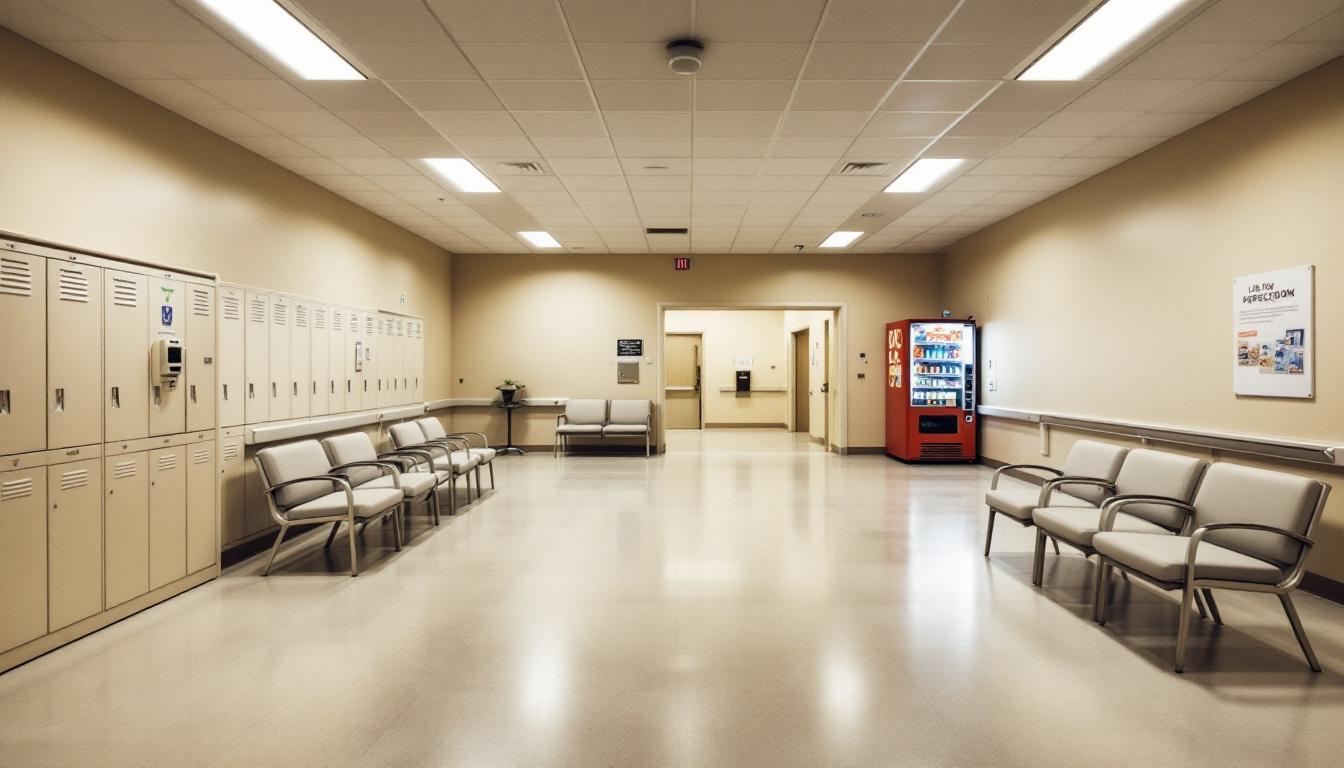
Building connections with family and fellow residents forms the foundation of daily experience for those incarcerated at the facility. At present, individuals actively participate in structured routines that furnish opportunities for social interaction and personal development. The day typically begins with morning count procedures, followed by meals served in communal dining areas where residents may engage with others from their housing units.
Furthermore, living accommodations generally consist of shared cells or dormitory-style housing units that house multiple individuals. Those incarcerated typically organize their personal belongings within designated storage areas and may purchase additional items through the commissary system. Although space remains limited, residents often create informal communities within their housing assignments, sharing resources and maintaining social bonds that help navigate daily challenges.
Programming schedules actively incorporate educational classes, vocational training, and recreational activities that encourage positive interactions among participants. Those incarcerated may access library services, participate in organized sports, or engage in hobby craft activities during designated recreation periods. The facility typically maintains visitation policies that allow family members to visit on scheduled days, while telephone access and correspondence options help residents maintain connections with loved ones. Although communication may be monitored according to security protocols, these contact opportunities generally provide essential emotional support and help preserve family relationships throughout incarceration.
Ready to Connect?
Start communicating with your loved one today
Search for an Inmate
